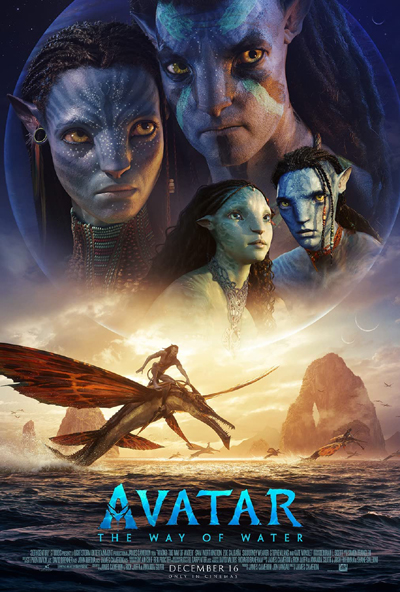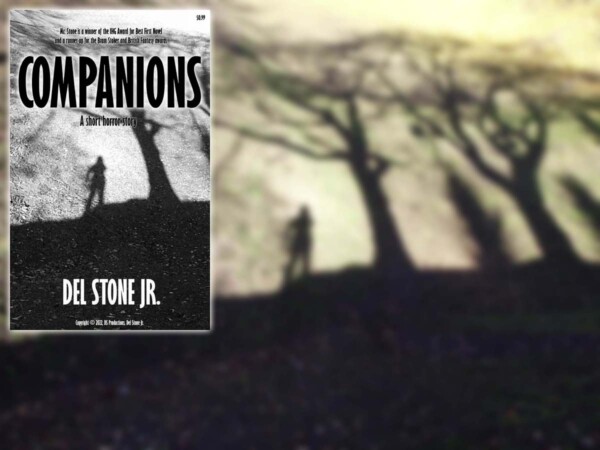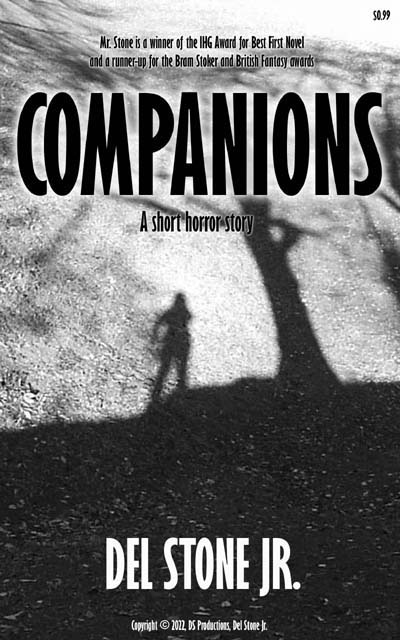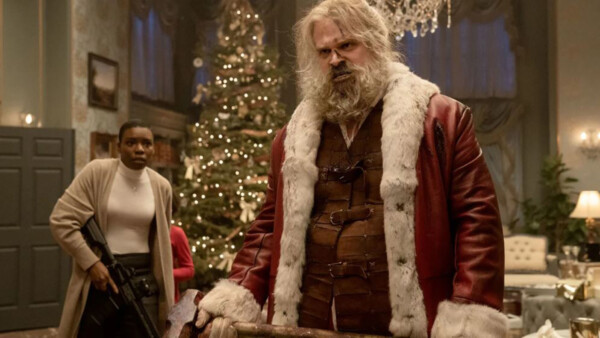Dec. 23, 2022 brought a record-breaking cold spell to our little corner of Florida

Image courtesy of Del Stone Jr.
About the author:
Del Stone Jr. is a professional fiction writer. He is known primarily for his work in the contemporary dark fiction field, but has also published science fiction and contemporary fantasy. Stone’s stories, poetry and scripts have appeared in publications such as Amazing Stories, Eldritch Tales, and Bantam-Spectra’s Full Spectrum. His short fiction has been published in The Year’s Best Horror Stories XXII; Alfred Hitchcock’s Mystery Magazine; the Pocket Books anthology More Phobias; the Barnes & Noble anthologies 100 Wicked Little Witch Stories, Horrors! 365 Scary Stories, and 100 Astounding Little Alien Stories; the HWA anthology Psychos; and other short fiction venues, like Blood Muse, Live Without a Net, Zombiesque and Sex Macabre. Stone’s comic book debut was in the Clive Barker series of books, Hellraiser, published by Marvel/Epic and reprinted in The Best of Hellraiser anthology. He has also published stories in Penthouse Comix, and worked with artist Dave Dorman on many projects, including the illustrated novella “Roadkill,” a short story for the Andrew Vachss anthology Underground from Dark Horse, an ashcan titled “December” for Hero Illustrated, and several of Dorman’s Wasted Lands novellas and comics, such as Rail from Image and “The Uninvited.” Stone’s novel, Dead Heat, won the 1996 International Horror Guild’s award for best first novel and was a runner-up for the Bram Stoker Award. Stone has also been a finalist for the IHG award for short fiction, the British Fantasy Award for best novella, and a semifinalist for the Nebula and Writers of the Future awards. His stories have appeared in anthologies that have won the Bram Stoker Award and the World Fantasy Award. Two of his works were optioned for film, the novella “Black Tide” and short story “Crisis Line.”
Stone recently retired after a 41-year career in journalism. He won numerous awards for his work, and in 1986 was named Florida’s best columnist in his circulation division by the Florida Society of Newspaper Editors. In 2001 he received an honorable mention from the National Lesbian and Gay Journalists Association for his essay “When Freedom of Speech Ends” and in 2003 he was voted Best of the Best in the category of columnists by Emerald Coast Magazine. He participated in book signings and awareness campaigns, and was a guest on local television and radio programs.
As an addendum, Stone is single, kills tomatoes and morning glories with ruthless efficiency, once tied the stem of a cocktail cherry in a knot with his tongue, and carries a permanent scar on his chest after having been shot with a paintball gun. He’s in his 60s as of this writing but doesn’t look a day over 94.
Contact Del at [email protected]. He is also on Facebook, twitter, Pinterest, tumblr, TikTok, Ello and Instagram. Visit his website at delstonejr.com .

Image courtesy of 20th Century Studios.
“Avatar: The Way of Water” Starring Sam Worthington, Zoe Saldana, Sigourney Weaver and Stephen Lang. Directed by James Cameron. 3 hours, 12 minutes. Rated PG-13. Disney.
Del’s take
You will emerge from “Avatar: The Way of Water,” a changed person – a senior citizen, to be exact. It’s that long. It would take less time to read the U.S. tax code, and who’s to say which is more fun – those amortization tables can be very sexy.
If only the rest of the world loved Pandora as much as James Cameron.
“The Way of Water” is as beautiful as it is tedious, which is to say it resembles a Nat Geo documentary about the Great Barrier Reef, cleaned up and made pretty by Disney Studios. The sights are breathtaking – water with the clarity and color envied by chambers of commerce the world over, teeming with alien life. Too bad the story is the aquatic equivalent of a swimming pool at Motel 6.
These are the broadstrokes:
When we last saw Jake Sully (Sam Worthington) in “Avatar,” he had joined the Na’vi, the native race of the moon Pandora, in expelling the evil earthmen who had come to wreck their Gaia-like ecosystem in a greedy quest for unobtanium.
Now, Sully is living the life of the noble savage with his Na’vi wife Neytiri (Zoe Saldana) and a passel of kids, until one day the evil earthmen return, this time in force. They want to claim Pandora as their own because mankind has made a mess of things on Earth. It only makes sense to relocate to a planet with a poisonous atmosphere and hostile natives.

Sully leads the Na’vi in a guerrilla campaign of harassment until the earthmen introduce a new weapon – a squad of Na’vi-adapted commando soldiers led by Quaritch, the Type A head of security who was killed by Neytiri in the first “Avatar.” His consciousness has been downloaded to a Na’vi body so that he may accomplish a specific mission – kill Jake Sully.
The commandos target Sully’s family. After a harrowing close call, Sully relinquishes his forest-dwelling tribe and takes Neytiri and clan to the land of the water people, Na’vi adapted to live in Pandora’s lush tropical ocean. There, they must learn the water people’s ways and fit in – until the earthmen come calling.
“The Way of Water” is a towering achievement in both concept and special effects. Cameron has created an entire biosphere with breathtaking attention to detail, and the FX are simply the best of any movie ever made. It must be seen in a widescreen theater, although some of the bigger 4K OLED TVs may do it justice.
The story, however, is less ambitious. It is a metaphor for Europe’s arrival in the New World, told from a Native American’s viewpoint, and while it shifts in focus from act to act – at first centering on Sully himself, then enlarging to include his children and how they mesh with the water people culture, then shifting back to Sully and his antagonist, Quaritch – the overall theme remains the same: good vs. evil, and the sacrifices that must be made to serve the greater imperative. At times the Sully character deviates from the archetype established in the first film, but never fear: Events will set the character arc back on track.
Overlooking the plot, “The Way of Water’s” most mention-worthy negative quality is its length. Three hours-plus is a long time to ask an audience to sit in a theater, especially when they’ve seen so much of it before. Expect multiple bathroom trips, dozing, sneaked looks at mobile phones, and maybe a pricey box of buttered popcorn to fend off starvation pains as dinnertime approaches.
Cameron belongs to a special cadre of directors – George Lucas, Stephen Spielberg, Ridley Scott, Stanley Kubrick, John Ford, Robert Wise – who tell the big stories, and tell them in big ways. Three of the top 10 highest grossing movies of all time are James Cameron films. Undeniably he is one of the best, if not THE best, director working today. “The Way of Water” is an excellent movie, despite its shopworn plot and excessive length.
I grade it an A-, and I award the minus only because I found it to be oddly unsatisfying. Perhaps you will feel differently.
Del Stone Jr. is a former journalist and author.

Photo courtesy of Ann W of Flicr by way of a Creative Commons license. See below for link.
I wrote this story back in 1993.
The editor of Crossroads, a small press magazine, invited me to submit a story, and one does not turn down an invitation from an editor.
Crossroads was a themed publication, the requirement being that every story had to involve a crossroad. Very well. I’d written enough stories to meet specifications that I felt I could easily handle this assignment.
The organization of a story around a crossroad, however, was not as easy as I’d thought. The story did have a crossroad, but it wasn’t integral to the theme. But it occurred to me that the viewpoint character had reached a crossroad in his sanity, and that’s how I pitched it to the editor.
I wanted to write a story about the toll of being gay. I have a theory: Because of our culture’s disapproval of homosexuality, gay people live under stresses that heterosexuals can’no’t imagine – the stress of hiding and pretending to be somebody else, the scorn and threat of physical harm. We react the way anybody would – sometimes with depression, other times with anti-social behavior. Drug and alcohol abuse, risky sexual behavior, mental illness and suicide are ever-present threats to the gay population. Perhaps if we weren’t always being told that we’re defective, or evil, this wouldn’t be true.
I also think I was working out some anger over a relationship, but who knows?
So I wrote “Companions,” a story about one man’s refusal to own up to his orientation.
Part of the story came from a dream. I don’t often use imagery from dreams in stories, but this dream frightened me so badly I remembered it long after waking. The initial segment about the couples touring the house – that was the dream. It played out almost exactly as I’ve described it here.
“Companions” was published in Crossroads, and later I had the idea to submit it to Karl Edward Wagner, editor of the annual Year’s Best Horror Stories anthology. Surprise of surprises, he accepted it. I was so happy I sent him a bottle of tequila.
Later I got to meet Wagner. He attended a convention here in my hometown. I went to his panel, and the audience sat there stone-faced. So I began asking questions and soon he was chatting animatedly and the panel became a success. Afterwards I introduced myself and he was not only pleased to meet me but thanked me for keeping the conversation going. That was the last time I saw him.
A few years after that I learned of his death, and it saddened me. He had paid $100 for the story, and when his estate was settled his brother sent me another check for $100, saying it looked like I hadn’t been paid. So I sent the check back. His brother insisted Wagner’s records indicated I hadn’t been paid. So I donated the money to the Horror Writers Association’s hardship fund.
That’s how “Companions” came to be.
(Cover image courtesy of Ann W. of Flickr by way of a Creative Commons license.)
From Amazon:

”Companions”: Revised, updated and enhanced with additional content.
Manion is dreaming. In his dream, he sees shadows capering against an opposite wall, framed by the sun, a living fresco of light and dark. And one of those shadows … he sees horns, and the shimmer of heat baking from its leathery skin. …
And then he awakens to Nina, who is angry. Nina, who is leaving. Nina, who cannot be satisfied with their relationship and never will, just like all the others. They all left like Nina left, angry and frustrated.
Because there is something wrong with them, Manion decides. Something that defies mere flesh, and blood. Something with horns, and leathery skin.
But Manion can fix them. Yes, he can do that. He can fix them.
Just like he fixed all the others. The ones who were hot to the touch.
The ones with horns, and leathery skin.
If you would like to order a copy of “Companions” follow this link.
About the author:
Del Stone Jr. is a professional fiction writer. He is known primarily for his work in the contemporary dark fiction field, but has also published science fiction and contemporary fantasy. Stone’s stories, poetry and scripts have appeared in publications such as Amazing Stories, Eldritch Tales, and Bantam-Spectra’s Full Spectrum. His short fiction has been published in The Year’s Best Horror Stories XXII; Alfred Hitchcock’s Mystery Magazine; the Pocket Books anthology More Phobias; the Barnes & Noble anthologies 100 Wicked Little Witch Stories, Horrors! 365 Scary Stories, and 100 Astounding Little Alien Stories; the HWA anthology Psychos; and other short fiction venues, like Blood Muse, Live Without a Net, Zombiesque and Sex Macabre. Stone’s comic book debut was in the Clive Barker series of books, Hellraiser, published by Marvel/Epic and reprinted in The Best of Hellraiser anthology. He has also published stories in Penthouse Comix, and worked with artist Dave Dorman on many projects, including the illustrated novella “Roadkill,” a short story for the Andrew Vachss anthology Underground from Dark Horse, an ashcan titled “December” for Hero Illustrated, and several of Dorman’s Wasted Lands novellas and comics, such as Rail from Image and “The Uninvited.” Stone’s novel, Dead Heat, won the 1996 International Horror Guild’s award for best first novel and was a runner-up for the Bram Stoker Award. Stone has also been a finalist for the IHG award for short fiction, the British Fantasy Award for best novella, and a semifinalist for the Nebula and Writers of the Future awards. His stories have appeared in anthologies that have won the Bram Stoker Award and the World Fantasy Award. Two of his works were optioned for film, the novella “Black Tide” and short story “Crisis Line.”
Stone recently retired after a 41-year career in journalism. He won numerous awards for his work, and in 1986 was named Florida’s best columnist in his circulation division by the Florida Society of Newspaper Editors. In 2001 he received an honorable mention from the National Lesbian and Gay Journalists Association for his essay “When Freedom of Speech Ends” and in 2003 he was voted Best of the Best in the category of columnists by Emerald Coast Magazine. He participated in book signings and awareness campaigns, and was a guest on local television and radio programs.
As an addendum, Stone is single, kills tomatoes and morning glories with ruthless efficiency, once tied the stem of a cocktail cherry in a knot with his tongue, and carries a permanent scar on his chest after having been shot with a paintball gun. He’s in his 60s as of this writing but doesn’t look a day over 94.
Contact Del at [email protected]. He is also on Facebook, twitter, Pinterest, tumblr, TikTok, Ello and Instagram. Visit his website at delstonejr.com .
About this book:
“Companions” is a 2,500-word short story and was written in 1993. It was originally published in Crossroads, 1993, and reprinted in “The Year’s Best Horror Stories XXIII,” Donald A. Wolheim Books, 1995. Copyright © 1993, 1995, 2021, Del Stone Jr.
The book’s total length is 4,034 words.

Image courtesy of Universal Pictures.
“Violent Night” Starring David Harbour, John Leguizamo, Beverly D’Angelo, Alex Hassell, Alexis Louder and Leah Brady. Directed by Tommy Wirkola. 1 hour, 52 minutes. Rated R. Prime.
Del’s take
You were expecting the David Harbour action-comedy “Violent Night” to be “Die Hard” re-imagined? Think again. “Violent Night” is a strange synthesis of action, comedy and fantasy, as if Disney, The Hallmark Channel and John McClane had combined their energies to create a new telling of “The Night before Christmas,” one fortified with violence, gushy sentimentality and, of course, a stiff slug of eggnog.
“Violent Night” is the story of Santa Claus – yes, THE Santa Claus (David Harbour) – who finds himself bleary-eyed and half-crocked at a London bar on Christmas Eve, besotted with the spirit of Christmas cynicism. And why not? His job as deliverer of gifts to all the good boys and girls of the world no longer has relevance. Children these days, he rants to fellow bar patrons, are nothing more than greedy, bloodthirsty little capitalists who want more, more, and more while giving nothing in return, not even their belief in the jolly old elf.
Meanwhile, the uber-rich Lightstone family has gathered at the family mansion to go through the motions of celebrating Christmas. In reality the event is a chance for selfish daughter Alva (Evi Patterson), her actor boyfriend Morgan Steel (Cam Gigadet) and sulking teenage son Bert (Alexander Elliot) to suck up to hard-drinking, foul-mouthed matriarch Gertrude (Beverly D’Angelo). Son Jason (Alex Hassell), his estranged wife Linda (Alexis Louder) and their daughter Trudy (Leah Brady) linger in the background, the more civilized and less materialistic of the sibling groups. Jason’s priority is making his daughter’s Christmas wish come true – that he and ex-wife Linda get back together so the three of them can once again become a family.
As a hung-over Santa arrives at the family mansion (Do people this wealthy deserve gifts from Santa?) and stumbles about, tossing gifts under the tree and helping himself to expensive brandy, a band of terrorists led by a Mr. Scrooge (John Leguizamo) invades the premises, kills the staff and takes the Lightstone family hostage. Their goal is to make off with the $300 million in government contract dollars the Lightstone family business received for work they never did. The money is hidden in Gertrude’s safe, which is said to be impregnable.

Santa wants nothing to do with this drama and tries to sneak away, but his reindeer are spooked by the gunfire and bolt to parts unknown, stranding Santa. Then he is drawn into the conflict by an accidental encounter with a bad guy, and the mournful pleadings of young Trudy, who shows some evidence of grasping the true meaning of Christmas. That’s enough to transform Santa into a pissed-off fly in the ointment, to borrow an expression from John McClane. When that happens, bloody mayhem ensues.
The violence is jaw-dropping – perhaps “jaw-breaking” is a better description. In one scene, as Santa carries on a soulful conversation with Trudy over a walkie talkie, a recently dispatched bad guy’s face burns to the bone courtesy of the holiday lights he was strangled with. And Santa himself is not immune to having his nose busted, his lip split open and his abdomen gutted. If Santa’s suit wasn’t red enough when the movie opened, it is by the closing credits.
Harbour turns in a solid performance as the jaded, burned-out Santa, and Cam Gigadet is funny as the brainless action movie star Morgan Steel. But it’s difficult to pick out particular actor or role as good or bad, as the creative staff can’t seem to decide what kind of movie it should be. A manic, absurdist comedy? An action movie, in the tradition of “Die Hard” or “The Long Kiss Goodnight”? Or a holiday fantasy about the true meaning of Christmas. The writers, and director Wirkola, appear to want all those things, and in the attempt it becomes none of them.
Ultimately “Violent Night” amounts to nothing more than its title, a violent Yule season encounter, with a nod to Charles Dickens, and Dr. Seuss. It’s not a bad movie per se, but it’s not memorable and will never achieve the cult-like status of a “Die Hard” or “Home Alone.”
I grade “Violent Night” as a B-.
Del Stone Jr. is a former journalist and author.